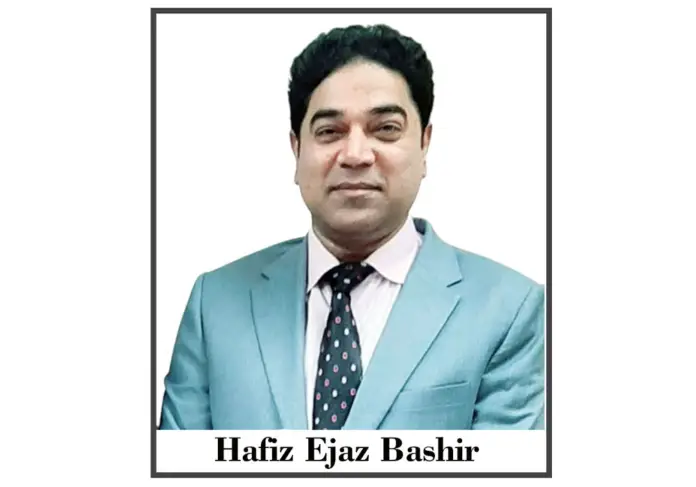Higher education reforms are indispensable for fostering a more dynamic and responsive educational ecosystem. These reforms encompass a range of initiatives aimed at digitalization,modernizing curriculum, enhancing teaching methodologies,and integrating emerging technologies into the learning process. By aligning educational practices with the evolving needs of society and industry, reforms ensure that graduates are equipped with the skills and knowledge required to thrive in today’s rapidly changing world. Moreover, reforms prioritize inclusivity and diversity, seeking to remove barriers to access and create a more equitable educational environment where all individuals have the opportunity to fulfill their potential.
Launching courageous initiative HED reforms are instrumental in driving innovation and research. Through increased investment in research infrastructure, funding for interdisciplinary studies, and incentives for collaboration between academia and industry, reforms stimulate a culture of innovation within higher education institutions. By fostering an environment conducive to cutting-edge research and discovery, reforms not only contribute to scientific and technological advancements but also enhance the overall quality and relevance of higher education. Ultimately, higher education reforms play a pivotal role in shaping the future trajectory of societies by empowering individuals, driving economic growth, and advancing knowledge and understanding across diverse fields of study.
Chief Minister Punjab, Maryam Nawaz Sharif, leads with a visionary approach, driving transformative initiatives in the Higher Education Department. Her leadership focuses on revolutionizing educational standards, enhancing accessibility, and maximizing efficiency to propel Punjab’s higher education sector into a new era of progress and innovation.Secretary Higher Education Department, Dr. Farrukh Naveed, underscores the department’s commitment to ensuring equitable access to quality education for all students. Dr. Naveed emphasizes collaborative efforts and innovative initiatives aimed at reshaping the higher education landscape, setting new standards of excellence, and empowering the youth to thrive in an ever-evolving world.
The Higher Education Department has ushered in a new era by introducing pre-1st year classes prior to the announcement of results. This groundbreaking policy marks a paradigm shift in educational practices, aiming to minimize academic downtime and maximize student engagement. By offering classes ahead of schedule, the department is not only providing students with a valuable head start on their studies but also fostering a culture of continuous learning and growth. This innovative approach is poised to yield manifold benefits, from enhancing academic performance to facilitating a seamless transition from secondary to higher education. Furthermore, by proactively addressing the gap between academic sessions, the department is demonstrating its commitment to nurturing a vibrant and dynamic learning environment conducive to success.
In a bold move aimed at addressing under-enrollment, the HED has issued a mandate requiring all colleges to ramp up their enrollments by 10%. This directive signals a firm stance on bolstering educational access and eliminating vacant seats across institutions. With potential repercussions, including leadership changes for non-compliant colleges, the department is emphasizing the urgency of this initiative. Recognizing that every unfilled seat represents a missed opportunity for a student, the push for increased enrollments is pivotal in promoting inclusivity and optimizing the utilization of educational resources. By championing this mandate, the department is not only advancing the cause of education but also reaffirming its commitment to fostering a thriving and vibrant learning environment for all.
In a proactive effort to dismantle financial barriers obstructing access to higher education, the government has rolled out a groundbreaking initiative: free preparation courses for the Medical and Dental College Admission Test (MDCAT) and the Engineering College Admission Test (ECAT) across 68 colleges. This transformative move is poised to level the playing field for aspiring students, especially those hailing from economically disadvantaged backgrounds, by equipping them with the resources and support needed to excel in these crucial entrance exams. By offering these preparatory courses at no cost, the government is not only democratizing access to quality education but also empowering students to compete on an equal footing for coveted spots in top medical and engineering institutions. This initiative represents a significant stride towards fostering a more inclusive and merit-based educational landscape, where talent and determination, rather than financial means, pave the path to academic success and professional fulfillment.
In response to the ever-changing educational landscape and dynamic market demands, a strategic initiative has been unveiled: the launch of new Bachelor of Science (BS) programs across 39 identified colleges. This ambitious expansion underscores a commitment to catering to diverse educational needs and cultivating a culture of innovation and research. By introducing these new programs, the educational ecosystem is primed to attract a wider pool of students while equipping them with the specialized skills and knowledge essential for success in today’s fiercely competitive job market. This strategic move not only broadens academic horizons but also positions students to thrive in rapidly evolving industries, ensuring they are well-prepared to meet the challenges and opportunities of the future.
Understanding the pivotal role of commerce education in fostering economic progress,directives have been issued to all 128 commerce colleges, urging them to bolster their enrollments. This strategic initiative underscores the government’s commitment to nurturing a skilled workforce poised to catalyze sustainable economic development. By amplifying enrollments in commerce colleges, the government aims to fortify the foundation of expertise essential for navigating today’s complex business landscape. Moreover, this concerted effort ensures that these institutions not only endure but thrive, remaining pivotal hubs of learning and innovation in the ever-evolving realm of commerce and economics.
Marking a transformative leap into the digital age, the Higher Education Department has unveiled a groundbreaking online transfer system for both faculty and administrative staff. Set to be implemented in two phases, scheduled for July and December respectively, this innovative system heralds a new era of efficiency and transparency in the transfer process. By digitizing this critical aspect of educational administration, the initiative promises to minimize bureaucratic bottlenecks, uphold merit-based placements, and elevate the operational efficacy of educational institutions. This forward-thinking endeavor not only embraces technological advancements but also underscores the department’s unwavering commitment to modernizing administrative practices for the benefit of all stakeholders involved.
Experience the transformation as we revolutionize the Higher Education Department through comprehensive digitalization. Secretary HED Dr. Farrukh Naveed leads this initiative, emphasizing its importance in streamlining administrative processes. Say goodbye to the hassles of paperwork, endless queues, and unnecessary visits to the office. With our new system in place, everything from leave requests, NOCs, transfer postings, to special pension applications can be seamlessly processed online. Gone are the days of waiting in line; now, efficiency and convenience are just a click away. Join us as we embrace the future of education administration, where bureaucracy takes a back seat to innovation and accessibility
The HED scholarship programs exemplify its commitment to nurturing talent and promoting educational inclusivity. Through initiatives like the Youth and Undergraduate Foreign Scholarships, students gain access to top-ranked global universities, fostering international exposure and essential skills for success. Meanwhile, Local Scholarships alleviate financial burdens, ensuring no capable individual is hindered in their academic pursuits. Honhar Scholarships recognize exceptional achievement, inspiring students to strive for greatness. These programs collectively reflect the department’s dedication to fostering excellence and empowering the next generation of leaders for a brighter future.
The strides made in higher education reforms by the HED under the visionary leadership of Chief Minister Punjab, Maryam Nawaz Sharif, and Secretary HED Dr. Farrukh Naveed, underscore a commitment to excellence, innovation, and inclusivity. From pioneering initiatives to bolster enrolments and enhance accessibility to the implementation of cutting-edge digital systems, each endeavor signifies a transformative shift towards a more dynamic and responsive educational ecosystem. As we navigate the complexities of a rapidly evolving world, it is imperative that we continue to prioritize education as the cornerstone of progress and prosperity.






